What happens in a blackout? Programme Yarrow and UK plans for winter power outages explained by an expert
and live on Freeview channel 276
Downing Street is working on a confidential plan which will map out how to keep the UK running in case of nationwide scheduled blackouts this winter.
As first reported by The Guardian, the plan is known as “Programme Yarrow” and will be actioned in the event of a seven-day outage which could see households without power for hours at a time. Its guidance outlines how vulnerable members of society, such as the elderly, will be helped, how electricity and heating needs will be met, and how information will be distributed via radio broadcast.
Advertisement
Hide AdAdvertisement
Hide AdThe programme was reportedly created last year after a major fault on the National Grid, but could now be used to help families and businesses in the UK if the country sees its power shut off this winter. It comes after National Grid revealed that scheduled blackouts could take place across the country in the “deepest darkest evenings” if electricity generators do not have enough gas to meet demand.
While the operator’s CEO John Pettigrew said this is very much a “reasonable worst-case scenario” and the company is “cautiously confident” the UK will be able to weather the winter months without taking this drastic action, there is still the possibility that energy supplies fall short - particularly if Russia attacks gas pipelines amidst its continued invasion of Ukraine.
NationalWorld has spoken to Antony Froggatt, senior research fellow at policy think tank Chatham House, about the government’s contingency plan for the potential circumstance in which the UK sees a nationwide power cut for the first time in 50 years. He explained what will happen in a blackout, what the government is planning as part of Programme Yarrow, how the public can prepare, and what should be done to prevent these circumstances in the future.
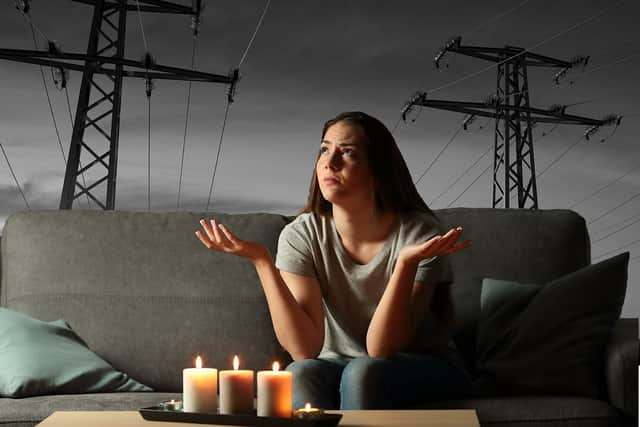

What happens during a blackout?
“The simple answer is that we lose power,” Mr Froggatt explained. “There are of course lots of things this will affect, as we use electricity for everything nowadays and are highly dependent on it being available 24/7. Lighting, heating, communication, transport… you name it.”
Advertisement
Hide AdAdvertisement
Hide Ad“But,” he continued, “what is likely to happen is that in the event of a power shortage, industry will go first.” By this, he is talking about businesses - many of which, according to the senior research fellow, have interruptible supply contracts. This means if the price of gas or electricity goes above a certain amount, the business stops paying and the power diverts elsewhere.
“This results in the smallest societal impact,” Mr Froggatt said. “Industry will shut down, but people’s lives will continue - lights stay on, heating remains etc.”
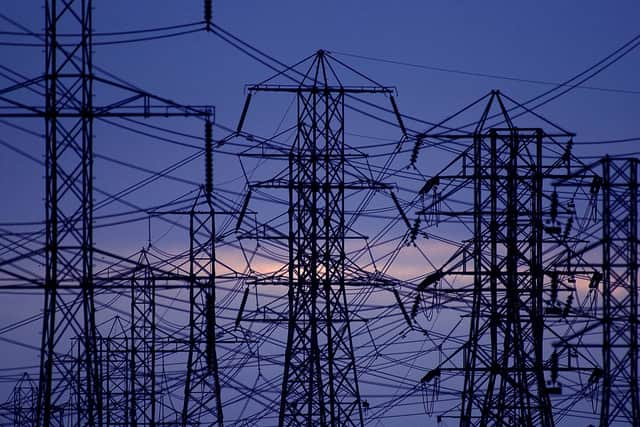

The next question of course is what happens if supply runs low to the point where industry cannot take the full brunt - and homes are affected too? Contrary to what you might imagine in this scenario, this does not mean the whole of the UK will suddenly be plunged into darkness.
It won’t happen suddenly because a blackout won’t be out of the blue. National Grid will be obligated to give families, households and businesses 24 hours’ notice for any planned power outages so that people can prepare. It also won’t affect the whole of the UK at once as power use will be rotated.
Advertisement
Hide AdAdvertisement
Hide AdMr Froggatt told NationalWorld: “Not everyone will be affected at the same time, or on the same day. Blackouts will be rotational, likely on an hourly basis, with different parts of the country seeing power at different times.” He said this approach is important as most people will be safe without power for a short while - and many everyday devices, such as mobile phones, can last on battery for hours at a time.
Blackouts are most likely at peak times, such as in the morning when millions of people are getting up, or between 4pm and 7pm, when people return home from work and school.
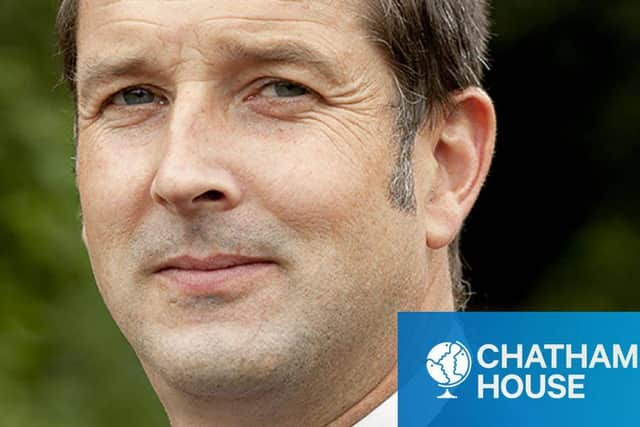

What are some of the things the government is planning?
The government’s plan outlines its response to a worst-case scenario - wherein blackouts could affect homes and businesses across the UK for up to seven days. It may seem somewhat apocalyptic, but Mr Froggatt said it is “sensible and normal” to be creating a plan.
Programme Yarrow details how more vulnerable members of society - such as the elderly, young, and those with caring responsibilities - will be prioritised, with ministers tasked with ensuring access to food, water, and shelter is available for these groups first. It also clarifies that hospitals and major airports will be protected from power outages.
Advertisement
Hide AdAdvertisement
Hide AdWhen it comes to communicating news and information, the government’s plan explains that only analogue FM radios will be able to function. BBC Radio 2 and BBC Radio 4 will be those broadcasting.
These circumstances will not last for too long, however, as Programme Yarrow states that 60% of all electricity demands will be met between day 2 and day 7 of the blackout, with 100% of the demand restored after a week. As Mr Froggatt mentioned, “intermittent access” to ration supply of power will be given to households and businesses during this period, meaning power will still be accessible for certain hours.


What are the concerns?
Despite the government’s planning, there have still been concerns raised about the impacts power outages could have. Carers have warned that blackouts could be “devastating” for disabled people, even with warnings. Meanwhile, others are concerned that loss of heating, even if only for a few hours, will be challenging for the vulnerable and elderly, particularly if they take place during the coldest months.
The loss of lighting may cause safety consequences, which is why it is important that people take heed of the 24 hour warnings National Grid will offer. (Households will also be able to check whether they are set to be affected by logging on to powercut105.com and entering their postcode.)
Advertisement
Hide AdAdvertisement
Hide AdMeanwhile, another issue is that of refrigeration. Depending on how long the power goes out for, things in people’s freezers may go off - making food wastage a concern. People who are struggling with the cost of living crisis may also struggle to restock their food as a consequence.
Hospitals with accident and emergency departments will be exempt from power outages - but some non-emergency facilities may be affected. NHS sites already have emergency generators that can kick in as a backup if external supply is lost for any reason, but Mr Froggatt suggested that the question will be how long these are able to operate for - and whether or not this is affordable for an already-stretched health service.
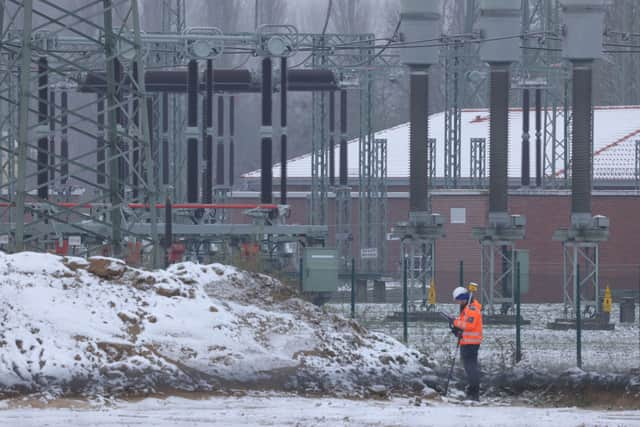

The Department for Business, Energy and Industrial Strategy told NationalWorld: “The UK has a secure and diverse energy system. We are not dependent on Russian energy imports and have plans to protect households and businesses in the full range of scenarios this winter, in light of Russia’s illegal war in Ukraine. To strengthen this position further, we have put plans in place to secure supply, and National Grid, working alongside energy suppliers and Ofgem, will launch a voluntary service to reward users who reduce demand at peak times.”
A Cabinet Office spokesperson added: “As a responsible government, it is right that we plan for all potential scenarios and work with industry to prepare and exercise robust contingency plans. This work is ongoing continuously and is an important strand of our national resilience planning. Local and national exercises are a part of this ongoing work and ensure we are able to effectively respond to any of a wide range of scenarios, no matter how unlikely they may be.”
Advertisement
Hide AdAdvertisement
Hide AdWhen it comes to these preparations, Mr Froggatt said he thinks there needs to be some discussion about the extent to which the government engages the public. He told NationalWorld: “If there is an increased likelihood of blackouts, then advising the public on how to be prepared for that is sensible. But you equally want to avoid a panic situation, where everyone rushes out and buys gas stoves, candles, canned food etc.”
When are blackouts likely to happen?
The UK is relatively safe from blackouts at the moment because the months of October and November, when the weather is supposed to turn colder, have been “unseasonably mild”, according to Mr Froggatt. From a supply perspective, “this is a good thing” because the longer people don’t turn their heating on for, the longer the stores stay full. The issue then, Mr Froggatt explained, will be towards the end of winter in January and February when supply starts to run out and there isn’t any more gas coming down the supply chain.
But this problem goes further than the winter of 2022/2023. Mr Froggatt said: “Russia supplied some gas to Europe for longer than you might think. Supply was coming down Nord Stream 1 for a few months after Vladimir Putin invaded Ukraine.”
This meant that the supplies which were depleted over the past winter, as a result of usual demand, could be restocked in the following months. But Mr Froggatt warned that if there is no replenishing of gas in Spring 2023, because of Russia cutting off supply, stores “may not be full in time for the following winter of 2023/2024. So it’s really worth stressing that this situation is not just a current issue.”
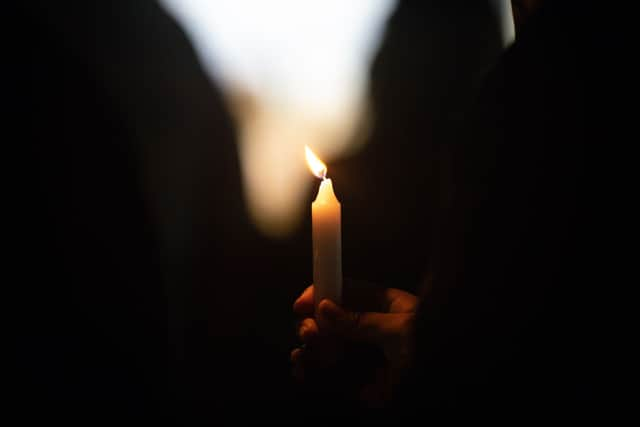

What caused this?
Advertisement
Hide AdAdvertisement
Hide AdBlackouts may be imposed on households if the UK is unable to import enough gas from Europe during the colder months, when demand is higher. Supplies have become insufficient because of the war in Ukraine, with Russia launching attacks on energy pipelines and causing higher gas prices and a lack of energy availability.
Mr Froggatt explained that the UK is reliant on these gas supplies for a few reasons. Firstly, while the country has increased its use of renewable energy, it is not yet at the point where it can rely on these sources. Secondly, the government’s “phasing out of coal” as part of its “clear and ambitious” decarbonisation plans has also naturally increased reliance on gas.
The senior research fellow added that it is worth noting that although the UK left the European Union, the country is still affected by events in Europe. He explained: “We’re no longer part of the EU or its internal energy market, but we are still part of the market zone. We are importers and exporters of gas and electricity from the EU - so their market price and availability affects the price we are paying for gas.
“This means we are still affected by what happens on the continent - from both a gas or electricity perspective. So it’s important to look at our response tactics from a regional response perspective rather than just a domestic one.”
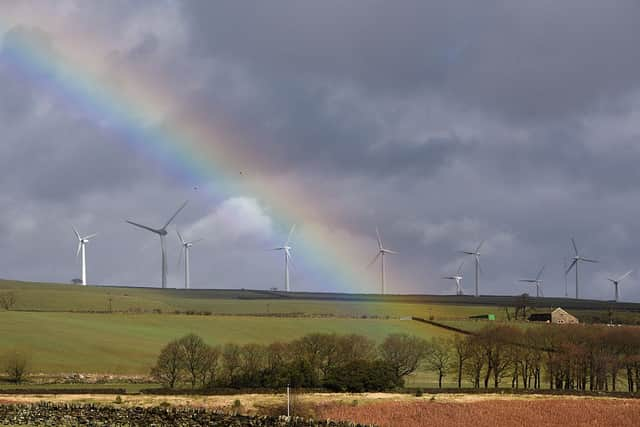

What can be done to help in the future?
Advertisement
Hide AdAdvertisement
Hide AdMr Froggatt said that one thing that needs to be improved is public education. To help energy conservation, the public should be better informed on things such as:
- how to insulate your house
- why you should
- how to save energy
- economic and environmental advantages of conserving energy
“Something else that need to be focused on is investing in alternative energy supplies, as the government is doing,” Mr Froggatt said, citing the reopening of Centrica’s Rough gas storage facility as an example. He also highlighted the importance of moving towards renewable energy, for instance using wind power in the winter and solar power in the summer, because “the diversification of supply means supply lasts longer.”
He added that he understands that “one of the key barriers against energy efficiency is high upfront cost,” but insisted - as has become clear in recent months - that “it is worthwhile in the long run.”
Comment Guidelines
National World encourages reader discussion on our stories. User feedback, insights and back-and-forth exchanges add a rich layer of context to reporting. Please review our Community Guidelines before commenting.
